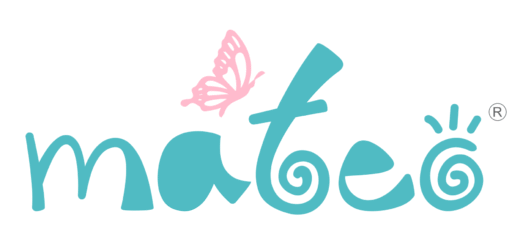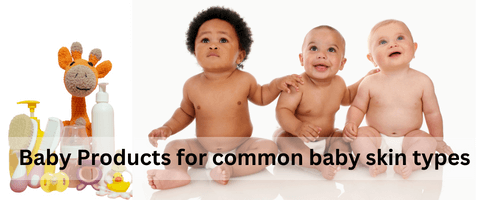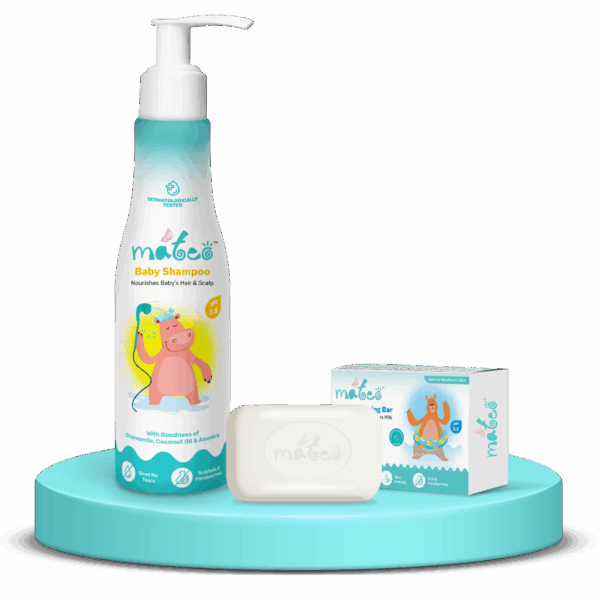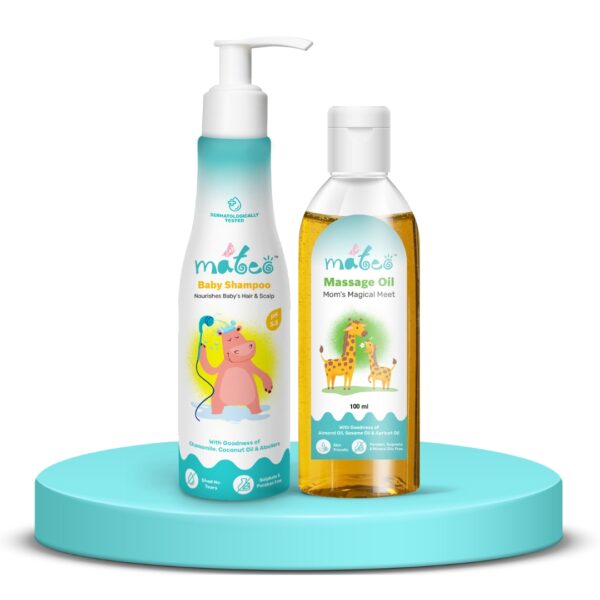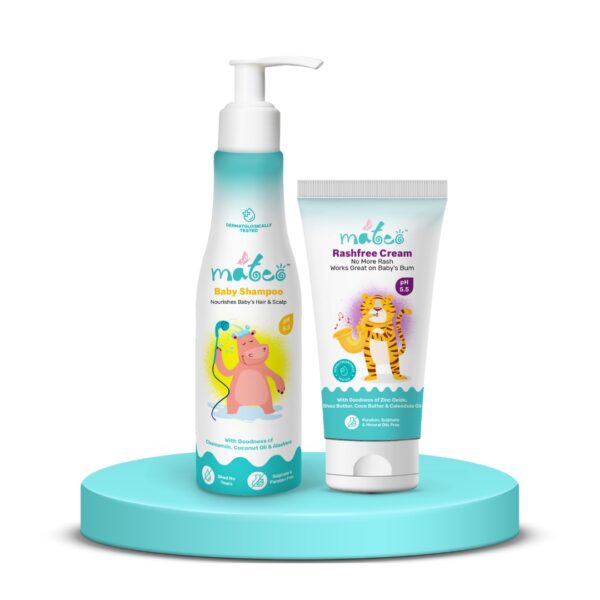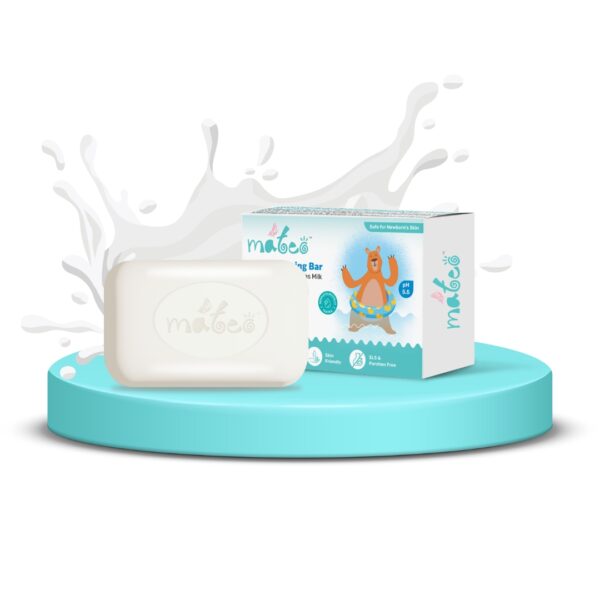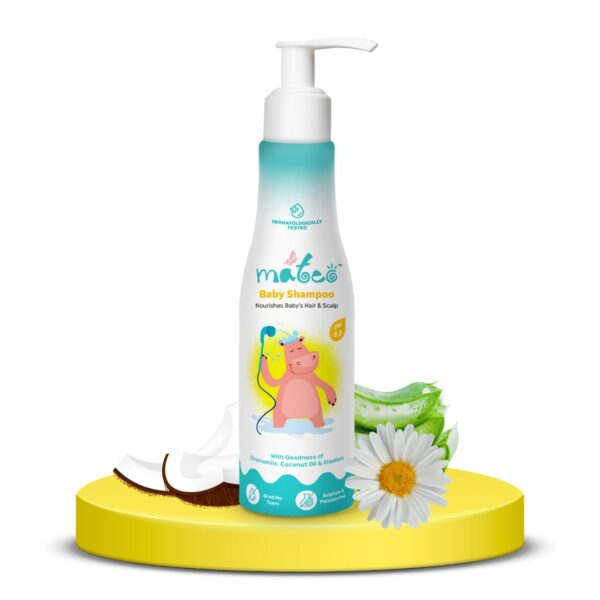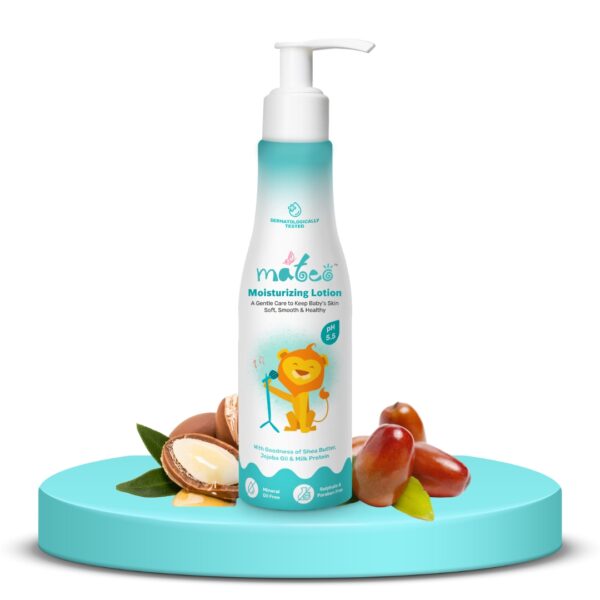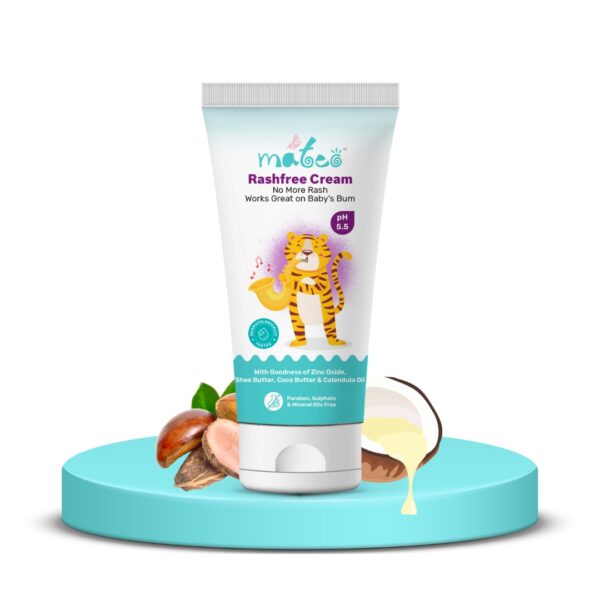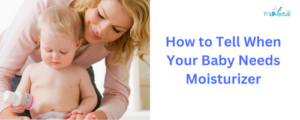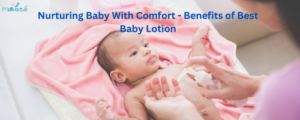Babies’ skin is soft and sensitive and needs extra care and protection. But did you know that not all newborns have the same skin type? Every baby’s skin is unique. Depending on your baby’s skin type, you may need to use various products and regimens to maintain their skin healthy and happy. In this blog, we can understand the common baby’s skin type and provide advice on how to purchase the finest baby skincare products for them.
What are the common baby skin types?

There are five types of neonatal skin observed in babies of all ethnicities:
- Normal skin: Normal skin is the most desirable skin type since it is smooth, soft, and supple. It has no dryness or sensitivity complaints and responds well to environmental changes.
- Dry skin: Dry skin is a common skin condition that is flaky, dry, and easily damaged. It is a dry, oilless substance that is easily irritated by cold, heat, or harsh objects.
- Sensitive skin: Skin that is extremely sensitive appears reddish, itchy, and irritated. It is susceptible to environmental factors such as temperature, water quality, and odors, and can produce rashes or eczema.
- Normal sensitive skin: This skin type seems normal most of the time, but can occasionally become red, itchy, or inflamed as a result of stress or irritation. It may also have a slight dryness or flakiness to it.
- Eczema-prone skin: This skin type has a persistent condition characterized by dryness, itching, and inflammation. It frequently causes red, scaly areas or blisters that leak or crust over. Allergens, illnesses, and stress can all set it off.
How to choose the best baby skincare products for your baby’s skin type?
Once you know your baby’s skin type, you can look for products that are specially formulated to suit their needs. Here are some general guidelines to follow:
- Look for products that are natural, hypoallergenic, fragrance-free and dye-free. These are less likely to cause irritation or allergic reactions to your baby’s skin.
- Avoid products that contain alcohol, parabens, phthalates, sulfates or other harsh chemicals. These can strip away your baby’s natural oils and damage their skin barrier.
- Choose products that are moisturising, nourishing and soothing. These can help hydrate, repair and protect your baby’s skin from dryness and inflammation.
- Use products that are appropriate for your baby’s age and stage of development. For example, newborns may need more gentle and protective products than older babies who have more mature and resilient skin.
Here are some examples of products that are suitable for different baby skin types:
- For normal skin: You can use products that contain avocado extracts, like Mateo tip-toe wash. These can help maintain your baby’s natural moisture balance and prevent dryness.
- For dry skin: You can use products that contain coconut oil, almond oil or shea butter, such as Mateo baby oil or baby moisturiser. These can help nourish, soften and heal your baby’s dry skin.
- For very sensitive skin: You can use products that contain schizandra berry extract sunflower oil distillate or Soothing Moisturizing Cream. These can help calm, soothe and strengthen your baby’s sensitive skin.
- For normal sensitive skin: You can use products that contain chamomile extract or liquorice root extract product These can help reduce redness, itchiness and irritation on your baby’s normal sensitive skin.
- For eczema-prone skin: You can use products that contain oatmeal extract or ceramides, products. These can help restore your baby’s skin barrier, relieve inflammation and prevent flare-ups.
How to care for your baby’s skin daily?
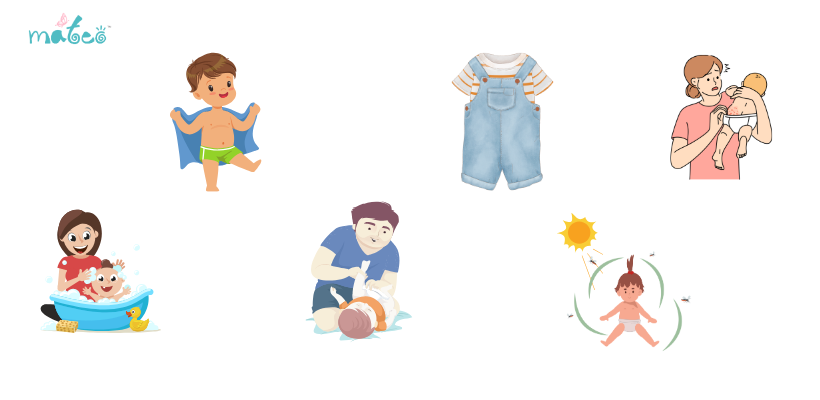
Besides choosing the right products for your baby’s skin type, you also need to follow some basic skincare routines to keep their skin healthy and happy. Here are some tips to remember:
- Bathe your baby once a day or every other day with lukewarm water and mild cleanser. Do not use hot water or soap as they can dry out or irritate your baby’s skin.
- Pat your baby’s skin dry with a soft towel and apply moisturizer while their skin is still damp. This can help lock in the moisture and prevent evaporation.
- Change your baby’s diaper frequently and gently clean their diaper area with water or wipes. Apply a barrier cream or ointment to prevent diaper rash and chafing.
- Dress your baby in loose, breathable and comfortable clothing made of natural fabrics such as cotton. Avoid synthetic fabrics, wool or tight-fitting clothes that can cause overheating, sweating or rubbing.
- Protect your baby’s skin from the sun by using sunscreen, hats, sunglasses and shade. Avoid exposing your baby to direct sunlight, especially between 10 a.m. and 4 p.m. when the sun is strongest.
- Monitor your baby’s skin for any signs of irritation, infection or allergy. If you notice any unusual rashes, bumps or spots on your baby’s skin, consult your pediatrician for advice.
Also Read Our Blog – How to take care of Baby’s Skin?
Conclusion
Your baby’s skin is delicate and sensitive, but it also has its own unique characteristics and needs. By knowing your baby’s skin type and choosing the best baby skincare products for them, you can help them enjoy a smooth, soft and healthy skin for life.

Nivethitha Sridharan
Nivethitha is a mother of two children and has a great interest in writing as an experienced mother. She publishes educational and interesting articles on baby care and also assists parents in selecting the finest baby products for their baby’s skin and well-being. She focuses on infant skin care and health issues. She also provides suggestions and guidance on baby care and avoids common skin disorders in newborns. Nivethitha likes studying and writing about new and innovative ideas that might assist people in finding solutions to their problems. She feels that content writing is an effective means of communicating thoughts and information to the world.
-
Baby Shampoo & Cleansing Bar (Combo Pack)
Add to basket₹580.00 -
Baby Shampoo & Massage Oil (Combo Pack)
Add to basket₹590.00 -
Baby Shampoo & Rashfree Cream (Combo Pack)
Add to basket₹575.00 -
Mateo All in One Pack
Add to basket₹1,700.00 -
Mateo Baby Cleansing Bar
Select options₹185.00 – ₹740.00 -
Mateo Baby Shampoo
Select options₹395.00 – ₹1,185.00 -
Mateo Massage Oil
Select options₹195.00 – ₹780.00 -
Mateo Moisturizing Lotion
Select options₹350.00 – ₹1,050.00 -
Mateo Rashfree Cream
Select options₹180.00 – ₹720.00
